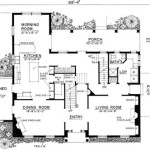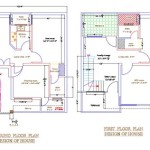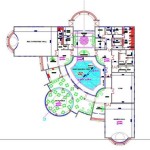Land Use Planning System and Housing Development Process in Malaysia
Land use planning is a crucial aspect of urban development, shaping the physical and social environment in which we live. In Malaysia, the land use planning system plays a vital role in regulating land use and ensuring sustainable growth. This article delves into the essential aspects of the land use planning system and the housing development process in Malaysia.
1. Land Use Planning Framework
The Malaysian land use planning framework is guided by various legislations, policies, and guidelines. The National Physical Plan (NPP) serves as the overarching policy document that sets the long-term vision and strategic directions for land use planning in the country.
2. Planning Authorities
State Planning Committees (SPCs) are the primary planning authorities in Malaysia, responsible for preparing and approving local plans within their respective states. Local governments, such as city councils and municipalities, are delegated the responsibility of implementing and enforcing these local plans through detailed development plans.
3. Zoning and Land Use Controls
Local plans typically define zoning regulations, which specify the permitted uses of land within specific areas. These regulations guide development decisions, ensuring compatibility between different land uses and minimizing conflicts.
4. Planning Applications and Approvals
Developers seeking to undertake development projects must submit planning applications to the relevant planning authorities. These applications undergo a review process to assess their compliance with zoning regulations and other planning requirements. Once approved, planning permission is granted, authorizing the development to proceed.
Housing Development Process
1. Land Acquisition
The first step in the housing development process is land acquisition. Developers may purchase land from private owners or lease it from the government or state land authorities.
2. Concept Planning
During concept planning, developers prepare a preliminary design for the housing project, including the proposed layout, density, and amenities. This concept plan is submitted to the planning authorities for review and approval.
3. Master Planning
Once the concept plan is approved, the developer prepares a more detailed master plan, outlining the specific design elements, infrastructure requirements, and phasing of the development. The master plan undergoes further review and approval before construction can commence.
4. Construction and Completion
The construction phase involves the physical execution of the development project. Upon completion, the developer obtains a Certificate of Completion and Compliance from the planning authorities, indicating that the project has met the approved plans and standards.
Conclusion
The land use planning system and housing development process in Malaysia play a critical role in shaping the built environment and ensuring sustainable growth. By regulating land use, promoting orderly development, and guiding the provision of housing, these systems contribute to the well-being of communities and the economic prosperity of the nation.

Institutional Framework Of Land Use Planning System In Malaysia Scientific Diagram

Land Use Planning System Its Role In Housing Development Process Ratna Aman Academia Edu

Development Plan Hierarchy In Malaysia According To Sections Of Act 172 Scientific Diagram

Housing And Construction In Malaysia Process Procedure To Develop A Land Shuhada Shamsudin Academia Edu
Schematic Representation Of The Land Use Planning Cycle Scientific Diagram

National Land Use Management In China An Ytical Framework Sciencedirect

A Global Land Administration Perspective Scientific Diagram

Spatial Planning An Overview Sciencedirect Topics

The Importance Of Development Plan System In Promoting Sustainable La Azam Academia Edu

Land Free Full Text Spatial Planning Implementation Effectiveness Review And Research Prospects








